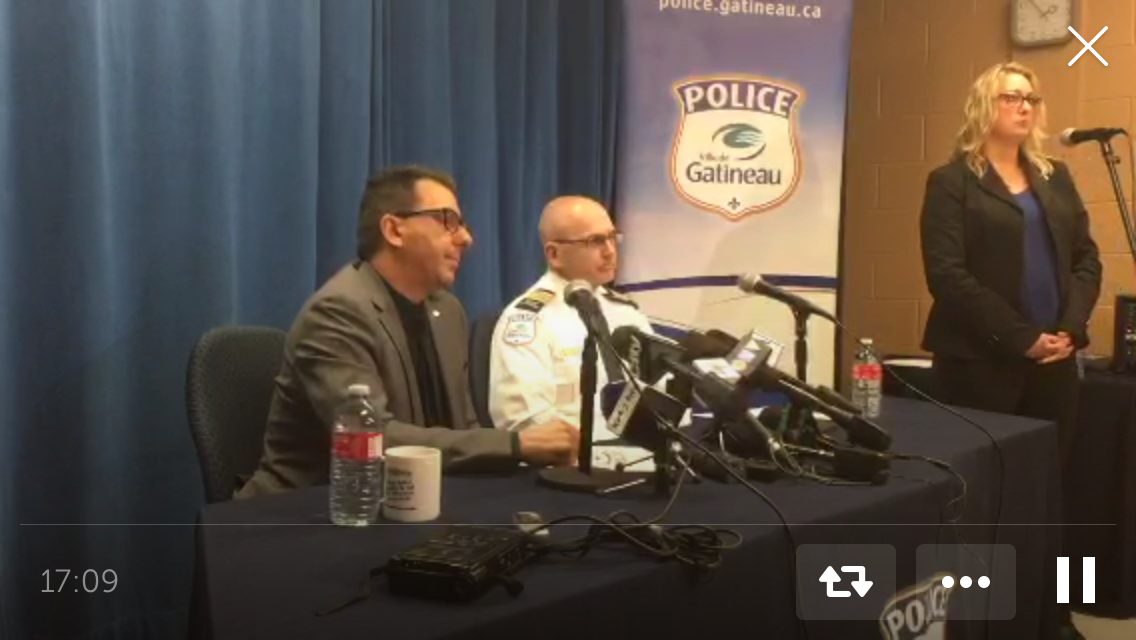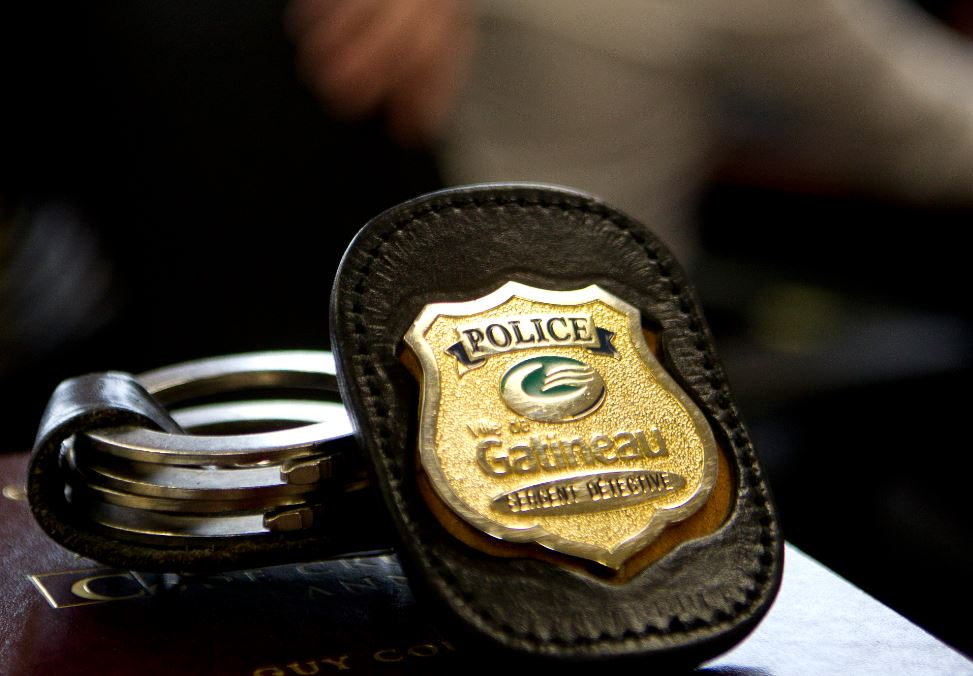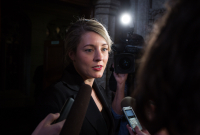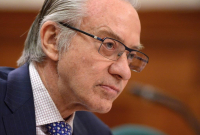Support strong Canadian climate journalism for 2025
Admitting that his department was in uncharted territory, Gatineau police director Mario Harel defended his department's decision to arrest a Radio-Canada journalist this week, despite mounting criticism from journalists that the arrest could have a silencing effect on working reporters.
Harel made the comments at a hastily-called news conference on Friday afternoon, explaining that he wasn't aware of any previous case in which his department had arrested a journalist who was doing their job.
"We respect the work of journalists, we don't want to prevent them from doing their work. But at the same time we work with victims," Harel told a press conference in Gatineau Friday afternoon. "We start with the premise that we believe victims."
On Tuesday night, Radio-Canada reporter Antoine Trépanier was arrested after spending a few days working on an investigation about a woman who had allegedly practiced as a lawyer in Ontario without being a member of the law society.
Asked if the arrest could be precedent-setting, Harel pointed out the police had to make a call but that the decision on whether to charge or not charge Trépanier would ultimately fall to the Crown.
"We're not indifferent to that possibility, that's why we have to ask a lot of questions to the person. ... Anyone can commit a criminal infraction at one point in their work," Harel said. "So where (is that line drawn) between doing the work and going on the other side, being harassment. That's what the officer has to assess when he takes the complaint of the victim. Like I said earlier, I'm very sensitive about the journalist doing their work and not preventing them from doing their work."
Trépanier was reporting on Yvonne Dubé, a director at a Gatineau affiliate of Big Brothers Big Sisters of Canada. She was found to be practicing as a lawyer in 2011 and 2012 without a licence, Radio-Canada's Trépanier reported.
Trépanier also reported that her former boss was Ottawa lawyer Christian Jacques Deslauriers, who was suspended on Feb. 23 by the Law Society Tribunal for three months and fined $12,500 for failing to ensure that a student-in-law at his office "was properly licenced."
National Observer has not been able to verify the allegation that she practiced without a licence, and she denied this allegation in the Radio-Canada report. But the public broadcaster said that Trépanier acted legally and ethically in pursuing the story and seeking comment from Dubé.
The broadcaster also reported on Friday that the board of directors of the Big Brothers Big Sisters affiliate was holding an emergency meeting on Saturday to discuss the controversy and that the board had expressed "all of its confidence" in Dubé.
"We find that his arrest was without basis, that he was just doing his job and that he was respecting the journalistic standards and practices of Radio-Canada 100 per cent," said Yvan Cloutier, a Radio-Canada director in Ottawa-Gatineau, in a separate report.

Radio-Canada explained that Trépanier called Dubé three times and sent her one email to arrange an interview. She also answered some of his questions over the phone and was quoted in his report.
While she had initially agreed to an on-camera interview earlier this week, Radio-Canada reported that she then cancelled it at the last minute.
The following day, on Tuesday, March 13, Trépanier called her again to offer her another chance to do an interview.
It is a standard practice in responsible journalism to offer the subject of an investigation every opportunity to comment and respond to allegations.
But Gatineau police say that a woman later came to a police station in the Hull sector of town and complained she was being threatened by a man.
"The alleged victim drafted a formal statement indicating that she feared for her safety following threats and repeated messages from a man," the police said in a statement. "Judging the statement to be credible and based on an analysis of the elements presented, a police officer contacted the person to inform him that he was subject to a criminal harassment complaint related to his work and that he would have to proceed with his arrest."
Trépanier received the call in the evening and proceeded to the police station with two other managers from the newsroom before midnight on March 13 to sign a promise to appear in court on June 20. He was also instructed to stop contacting Dubé.
Trépanier has not been charged with any crime and Crown prosecutors have not yet decided whether he will be charged.
The police said it considers freedom of the press to be essential and that the public has a right to have access to accurate news and information delivered with rigour.
It also said it had no intention of restricting freedom of speech and the work of a journalist.
"At the same time, (Gatineau police) believe entirely in respecting the rights of victims who wish to make a complaint in order to ensure that their files can be treated impartially," the police force said in its statement. "Police officers work in an impartial and neutral manner with the elements at their disposal, and they do this, without any regard for political ideals, for the jobs or the status of individuals."
Critics warn of silencing effect on journalists
Stéphane Giroux, head of the Quebec journalists' federation called the arrest "extremely worrying" and noted it was based solely on a single complaint without investigation.
"Based on a simple complaint, without a police investigation, a journalist has been silenced," Giroux said in a statement. "It's very concerning."
Canadian Journalists For Free Expression also said it is "gravely concerned" by the decision to arrest Trépanier and called on the Crown to withhold charges given the impact a charge could have on press freedom.
The organization said a reporter's job involves asking difficult questions of community leaders and acting proactively to give the respondent a chance to comment.
"The law is intended to protect victims of domestic abuse, stalking or other serious criminal behaviour," executive director Duncan Pike said in a letter to the Crown.
"Using it as a way to discourage or silence speech, advocacy or public interest journalism is deeply troubling."
— With files from The Canadian Press





Comments